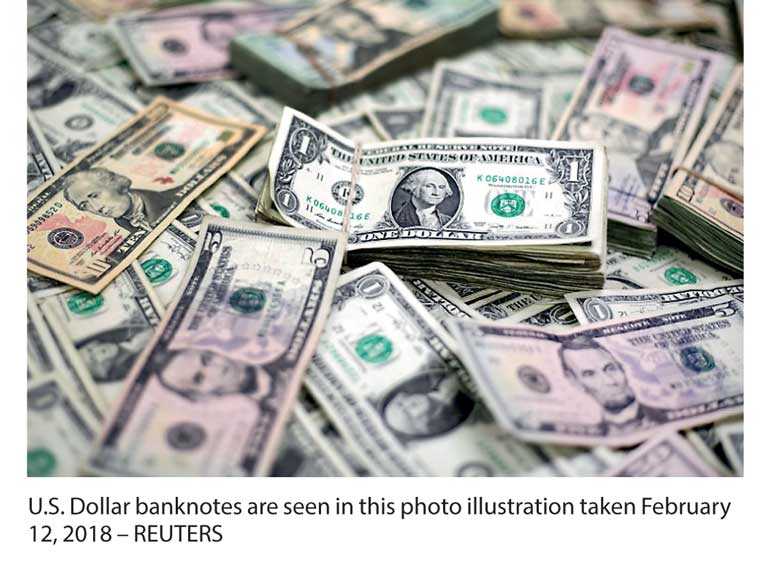Saturday Feb 21, 2026
Saturday Feb 21, 2026
Wednesday, 25 April 2018 00:00 - - {{hitsCtrl.values.hits}}
 Reuters: Most emerging Asian currencies weakened on Tuesday as rising US bond yields boosted the dollar, dampening interest in riskier assets.
Reuters: Most emerging Asian currencies weakened on Tuesday as rising US bond yields boosted the dollar, dampening interest in riskier assets.
The dollar set a three-month high against a basket of currencies, supported by the US 10-year Treasury yield climbing toward the psychologically key 3% level on worries about the growing supply of government debt and inflationary pressures from rising oil prices.
The dollar index against a basket of six major currencies was a shade weaker by 0455 GMT.
There is a “potential return of policy divergence thematic where the US Federal Reserve is the only central bank tightening, while other central banks are not in a hurry to tighten, especially for this quarter,” said Christopher Wong, a Singapore-based FX strategist with Maybank.
“Typically, monetary policy divergence thematic favours higher US Treasury (UST) yields and USD strength.”
Traders are of the view that the Federal Reserve will raise key short-term borrowing costs three more times in 2018 in the wake of data that showed steady US economic growth.
However, central banks in much of emerging Asia appear to be in no hurry to normalize policy in synch with the Fed, while economists believe China could reverse its tightening course and shift to more supportive policies if a trade dispute with the United States worsens.
Still, Wong sees the policy divergence as temporary.
“Higher energy and commodity prices globally as well as tightness in labour markets in various countries including UK, EU, Australia, Korea ... should feed through to inflation and brings back the case of monetary policy convergence as other central banks shift into tightening phase in the second half of 2018.”
The South Korean won was the biggest decliner in the region, weakening as much as 0.95%.
Wong said that the won in particular is highly sensitive to rapid increase in UST yields.
The Taiwan dollar fell 0.4% to its lowest level since early Jan. The Taiwan SE Weighted Index was down 1.1%, weighed down by losses in information technology stocks.
The Singapore dollar recovered to gain 0.2% versus the dollar.
Chinese stocks, which rallied over 2% after Beijing vowed to achieve this year’s economic targets, helped buffer the Singapore dollar against further losses, said Wong.
The Thai baht was also 0.2% firmer, in line with gains on the stock index.
The Malaysian ringgit slipped 0.3% to its weakest position in nearly one month.
“Despite the long-term supportive underlying structure from higher oil prices, the short-term election drivers and a broadly stronger USD will continue to put downward pressure on the MYR near term,” Stephen Innes, head of trading APAC at Oanda, said in a note.
Malaysia will hold a general election next month, in what could be the toughest test of the ruling-coalition’s 61-year grip on power.